Cultivating humanity in a turbulent era Tokyo Forum 2023 explores pathways to preserve human wisdom amid social divisions and digital transformation

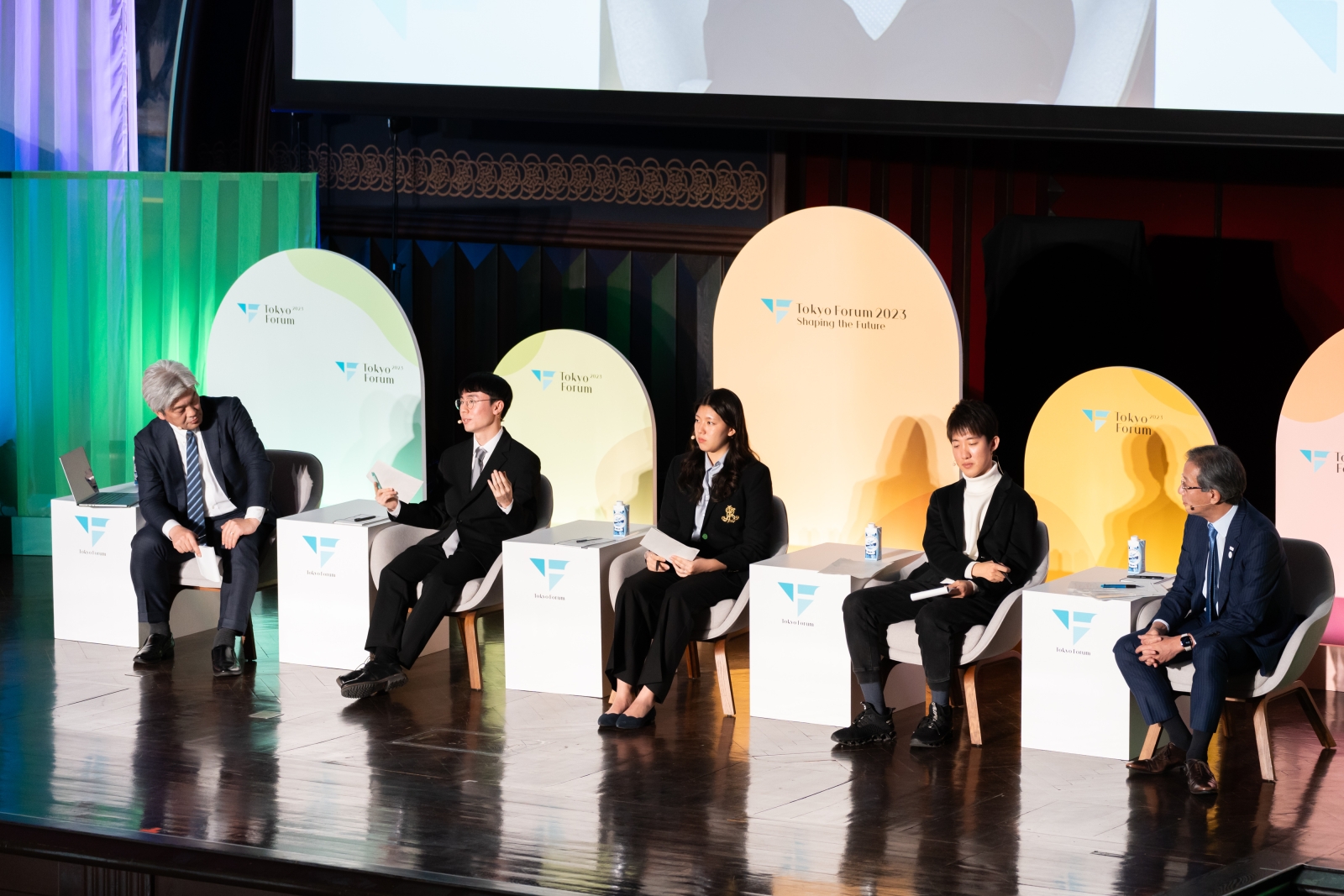
Cultivating a collective sense of humanity is the key to dealing with the many and varied challenges we face in an era of accelerated geopolitical tensions, social divisions and digital transformation driven by artificial intelligence. That was the dominant theme when some 40 speakers discussed how to shape a better future for humankind during lively discussions at Tokyo Forum 2023, which was held Nov. 30 and Dec. 1, 2023, at the University of Tokyo.
The symposium attracted online participants from around the world, as well as people who attended in person at the university’s Yasuda Auditorium, where the event took place.
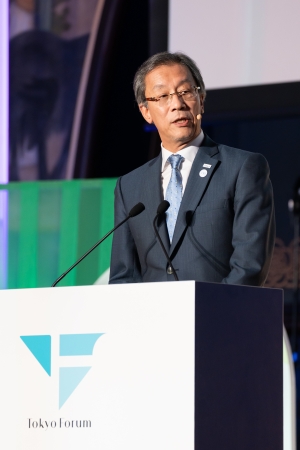
In his opening remarks, UTokyo President Teruo Fujii underscored the significance of holding the symposium against the backdrop of accelerated geopolitical divisions and discord, as well as rapid progress in the digital transformation of society. That transformation has blurred the boundaries between humans and technology, leading to a re-evaluation of our understanding of humanity.
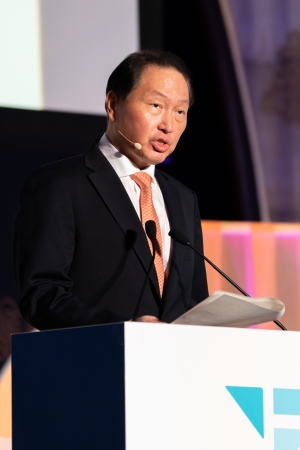
“In this increasingly complex environment, both in terms of geopolitics and technology, higher education must be dynamically engaged and integrated in the global discourse,” Fujii said. “Universities must continue to play a central role in gathering wisdom and insights from all sectors of society, from governments to the private sector. This mission can only be achieved through collaboration, where experts from diverse fields come together.”
Tokyo Forum 2023 was the fifth annual symposium held under the overarching theme of “Shaping the Future,” cosponsored by UTokyo and South Korea’s Chey Institute for Advanced Studies.
Chairman Chey Tae-Won of South Korea’s SK Group noted in his opening remarks that South Korea and Japan must play a more proactive role on the global stage, not only for the sake of economic growth, but also for their own survival. “Korea and Japan must form a strong economic coalition,” he said, citing promising opportunities in areas such as semiconductors, electric vehicle batteries, pharmaceuticals and renewable energy.
Humanity based on sociology, psychology, geopolitics
Fujii’s and Chey’s remarks were followed by keynote addresses by three speakers: Emeritus Professor Surichai Wun’Gaeo of the Faculty of Political Science at Chulalongkorn University in Thailand; Distinguished Professor Alison Gopnik of the Department of Psychology at the University of California, Berkeley, in the U.S.; and Emeritus Professor Kiichi Fujiwara of the UTokyo Institute for Future Initiatives, who is also special advisor to the president of Chiba University in Japan. They discussed how to nurture a collective sense of humanity from very different perspectives.
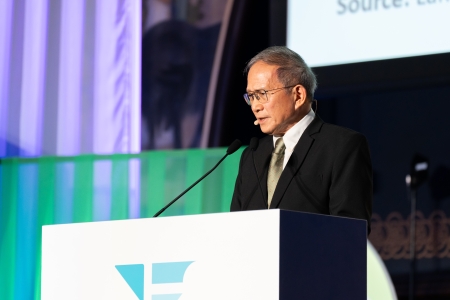
Wun’Gaeo, a sociologist, discussed transboundary issues to underscore the importance of cooperation — on which humans rely to survive and thrive — on a regional basis. He cited the example of the Mae Tao Clinic in Thailand, located near the country’s northwestern border with Myanmar. It provides health care to displaced people from Myanmar who fled their homeland, particularly after the 2021 military coup that toppled the civilian government. He also referred to the potential environmental impact, such as biodiversity loss, of proposed dam development projects along the Mekong River, which passes through China, Myanmar, Laos, Thailand, Cambodia and Vietnam.
“I raised these issues ... to prompt reflection on our future,” Wun’Gaeo said. “How can we shape our future based on knowledge, not solely on geopolitics?” He emphasized that “our engagement with knowledge and global governance can become part of a broadly collaborative framework encompassing business, human rights, responsibility toward new generations and the potential future of the Earth.”
As a psychologist, Gopnik offered intriguing insights into the question of “what is humanity?” — or the quality of being humans — in her keynote address. She introduced her research on how closely current artificial intelligence (AI) systems can emulate the learning processes of children, as well as strategies for enhancing AI’s ability to learn in a more “childlike” way.
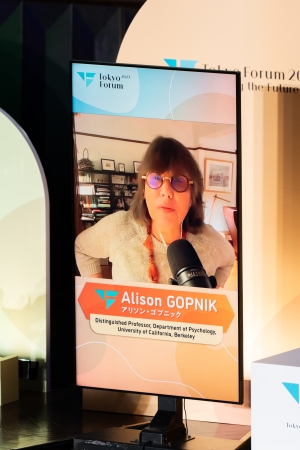
“Children are the best learners that we know of in the universe,” Gopnik said. She added that they acquire knowledge by exploring the unknown, while adults tend to act based on experience. Another crucial element in children’s learning is the care given not only by their parents but also by grandparents, who pass on information to the grandchildren.
An experiment conducted by Gopnik and her team using a toy called the “blicket detector” found that 4-year-old children outperformed two AI systems — one a reinforcement learning agent and the other a generative AI — in figuring out how to play the toy’s game. “Even though LLMs (large language models) like ChatGPT (a chatbot) are very good at generating text, they are bad at going out to the world, exploring and getting new information about how the world is like, and changing minds about how the world works,” Gopnik said. “They don’t have the ability to pass on information, explore and find out information, which children are doing.”
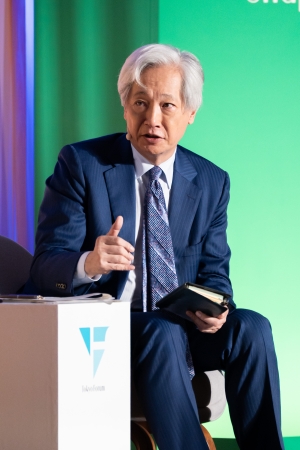
Fujiwara, a political scientist, discussed the current international situation and explained how polarized and divided the geopolitical landscape has become. He examined the Israel-Hamas conflict, the Russian invasion of Ukraine, and escalating tensions between the United States and China to highlight human behavior in the dynamics of geopolitics.
Fujiwara identified factors leading to current wars and escalating tensions, including the rise of Chinese power and the decline of U.S. hegemony, the resurgence of governmental intervention in trade and businesses merging economy and geopolitics, and the anti-elitism and anti-globalism that is contributing to the decline of the liberal international order.
Fujiwara predicted further instability in the global geopolitical situation, driven by the declining power of Russia, the United States, China and Israel. “Alternatives are to stop wars,” Fujiwara said, emphasizing the importance of making peace deals.
Following their speeches, the three speakers took part in a plenary session moderated by Jin Sato, professor and deputy director of UTokyo’s Institute for Advanced Studies on Asia.
During the discussion, Sato brought the three speakers together on common ground by asking how the cooperative and altruistic relationships observed in infants could be extended to the scale of nations, or the entire planet.
Acknowledging that this is the greatest contemporary political challenge, Gopnik emphasized that the issue has been largely ignored. “I think we really need to take them seriously and see how we could provide (the sort of cooperation and altruism seen in infants) at the scale of nations or the planet,” she said.
Fujiwara highlighted another factor influencing the reality of international relations, in addition to the social contract and democratic values. “That factor is hegemony, where one power, if not holding a monopoly, exerts significant influence over others,” he explained, pointing to a downside of human nature that may hinder cooperation. “The hegemon always frames their argument in terms of a collective good, claiming to provide safety, and in return, they expect repayment. I bring this up because it is inherent in the nature of international relations.”
On the other hand, Wun’Gaeo proposed a region-based approach that transcends national borders to achieve much-needed cooperation in addressing challenging geopolitical and environmental issues.
Warming Japan-South Korea relations spur business, academic discussions
As Chey mentioned in his opening remarks, relations between Japan and South Korea have seen a significant improvement, symbolized by frequent face-to-face talks between Japanese Prime Minister Fumio Kishida and South Korean President Yoon Suk-Yeol in 2023.
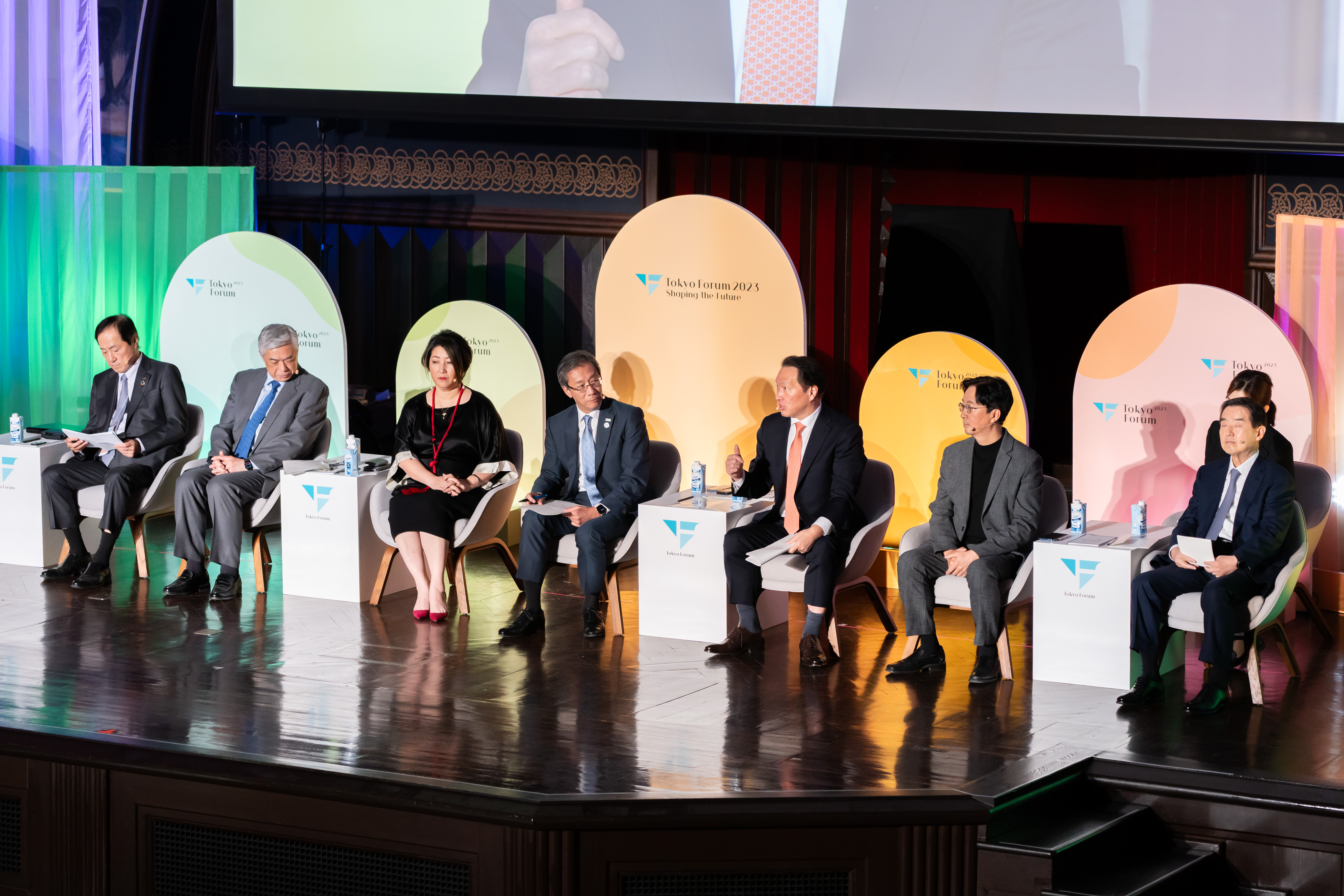
During the Business Leaders’ Session moderated by Fujii, Chey expanded on his idea of establishing a robust coalition between the two nations. He emphasized that this moment of improved bilateral relations should act as a springboard to address the current international business situation. Chey concurred with UTokyo’s Fujiwara’s argument regarding the resurgence of governmental intervention in trade and the merging of economy and geopolitics.
Japan, boasting a gross domestic product (GDP) of $5 trillion, and South Korea, with a gross national product (GNP) of $1.7 trillion, not only share similar cultures and political systems, but also common challenges such as a shrinking population, Chey noted. This similarity facilitates the implementation of new business rules and systems. It also enhances the potential for generating synergistic effects and attracting more countries to join the proposed coalition.
The Japanese panelists echoed Chey’s sentiment regarding forging a stronger business alliance. Chairman Ken Kobayashi of the Japan Chamber of Commerce and Industry noted that “as our economies become inseparable, it is vital to press ahead with future-oriented economic cooperation.”
Fujii agreed with Chey’s proposal to conduct a pre-study on creating a joint study group tasked with looking into how to form a Japan-South Korea coalition at the academic, business and governmental levels. The results of the pre-study will be announced at Tokyo Forum in 2024.
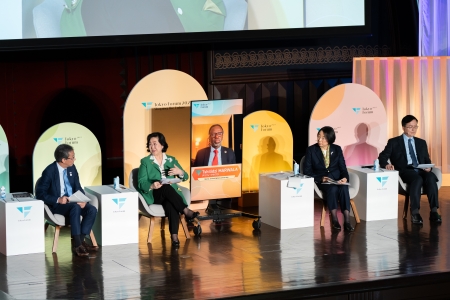
The symposium also featured the University Presidents’ Session, focusing on the role of universities in this era of digital transformation. Additionally, two panel discussions, titled “Why Are Robots Questioning Humanity?” and “Bridging the Social Divide: How to Safeguard the Global Commons and Rebuild Humanity,” were held around their respective topics.
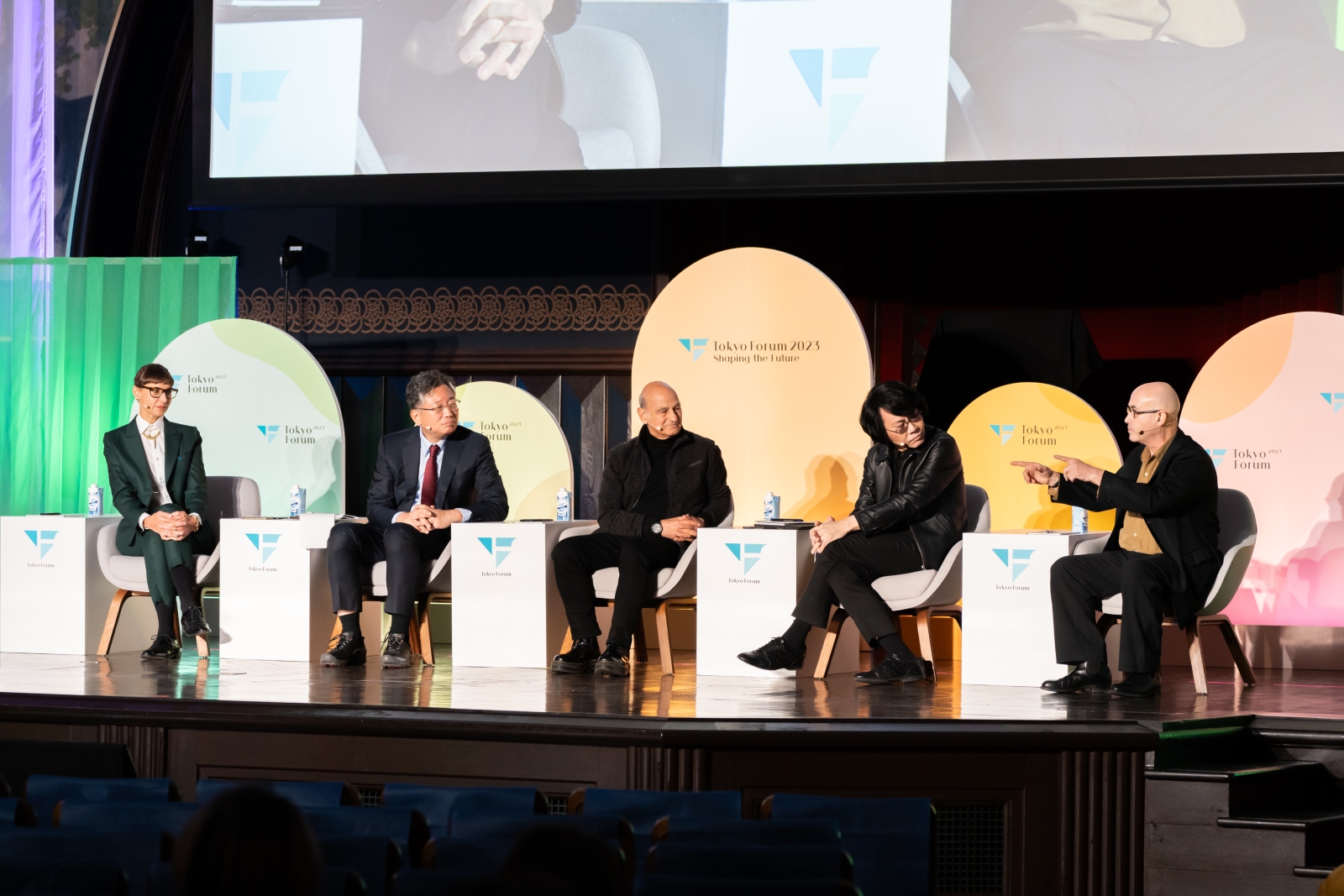
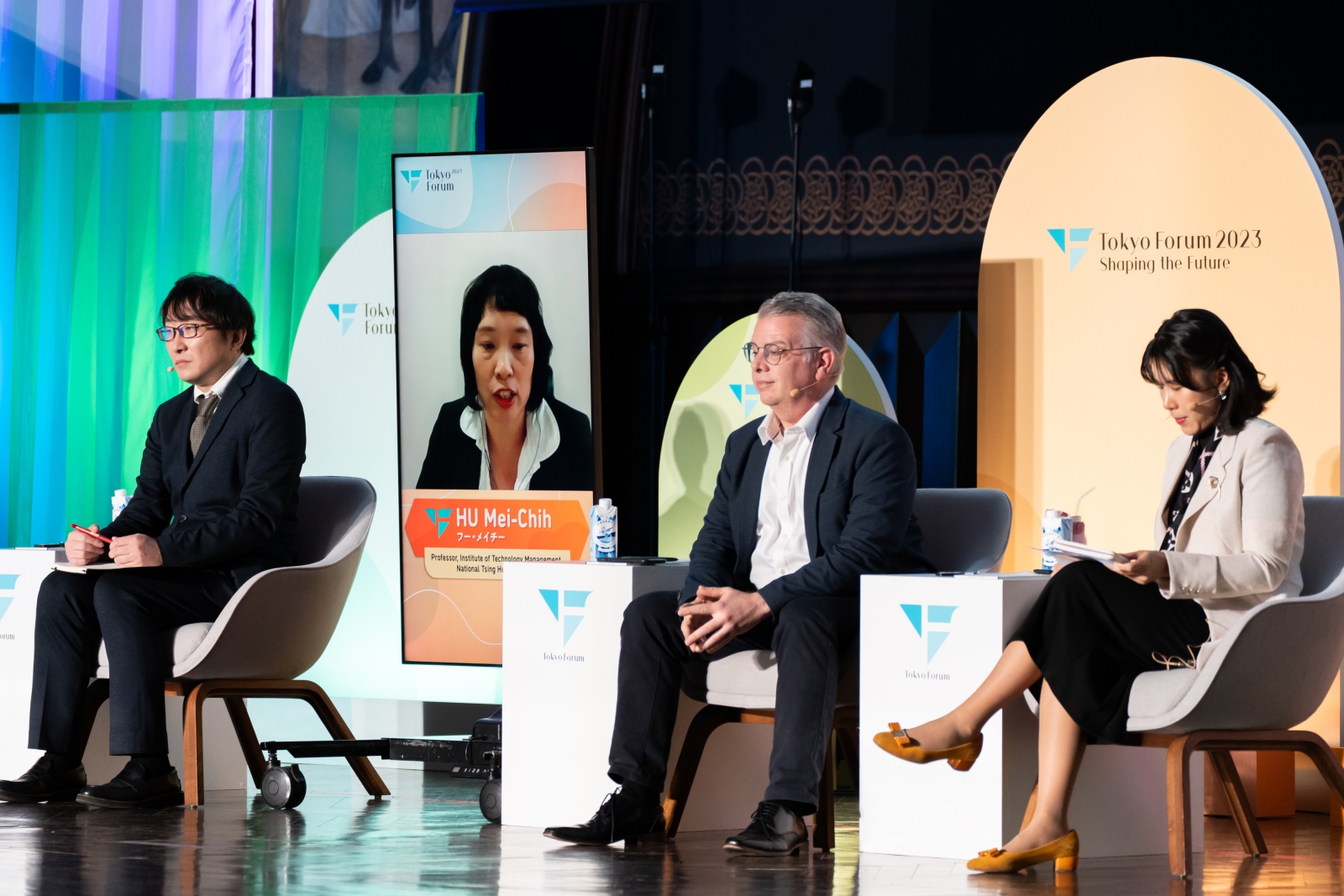
Youth critical of the establishment
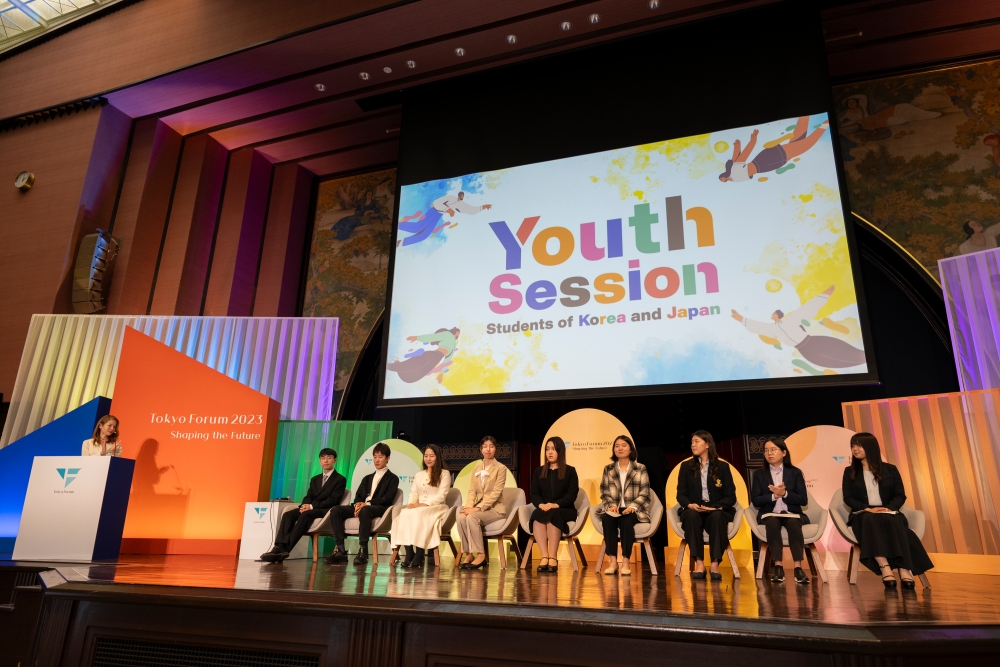
Joint presentations by Japanese and South Korean students during the Youth Session were another key feature of the symposium. They delivered strong criticism of the establishment that effectively controls the policy-making process, centering on three themes: AI, the environment and low birthrates.
A generational divide was apparent in the discussions: For example, Oh Soo Jee of Yonsei University in Seoul said, “Despite the fact that the younger generation is the primary user and is the most affected by AI, it’s the older generation that designs and addresses the associated problems. Even when the measures are in place … large corporations or the government fail to provide revisions or alternative long-term solutions, leading the younger generation exposed to unforeseen risks.”
Mayuko Omichi of UTokyo also urged the older generation to listen to young people, emphasizing that youth will bear the consequences of short-term benefits brought about by technology that damages the environment. She said a dark future lies ahead if the environment in which we live disappears and is damaged.
Criticism was leveled against developed nations for exporting air-polluting vehicles to developing nations; users of neonicotinoids, a class of insecticides, that can kill bees with serious consequences in food production; and institutional regulations that make it hard for young people to get married or for a single father to raise a child.
In wrapping up the two-day symposium, Fujii joined a discussion with some of the Japanese and South Korean students who participated in the Youth Session. When asked if university professors are facing competition from AI, Fujii stressed the importance of acquiring knowledge through experience. He stated, “We’d like to prioritize experiential learning as part of university education,” adding that it was the role of universities to verify if digitally circulating information is correct.
Professor Kazuto Suzuki of UTokyo’s Graduate School of Public Policy, who moderated the session, added that higher education should provide learning experience that students cannot get from AI. Students should aim for high value-added work, which requires training and education, he emphasized, saying, “It is a great opportunity for students to do something that AI can’t do.”
In his closing speech, Fujii concluded as follows: “This gathering serves as a unique and invaluable occasion for Japanese and Korean scholars and students to unite, exchange ideas and engage with global leaders across diverse fields. We will continue to host Tokyo Forum in 2024 and for years after that, so we may build upon our productive and forward-looking discussions about the future of our planet and human society.”






